
MEET OUR VERTICAL TAKEOFF AND LANDING AIRCRAFT

A MULTI-MISSION AVIATION PLATFORM
Our platform integrates electric or hybrid-electric propulsion with vertical takeoff and conventional takeoff capabilities. It also uses modular mission architecture to support a wide range of operational needs. All systems follow certification-aligned design principles to meet requirements from EASA and FAA for performance, safety and redundancy.

MANNED CONFIGURATION

UNMANNED CONFIGURATION
VTOL-CAPABILITY

CTOL-CAPABILITY


FULL-ELECTRIC PROPULSION

HYBRID-ELECTRIC PROPULSION
OUR AIRCRAFT IN 3 CORE ELEMENTS
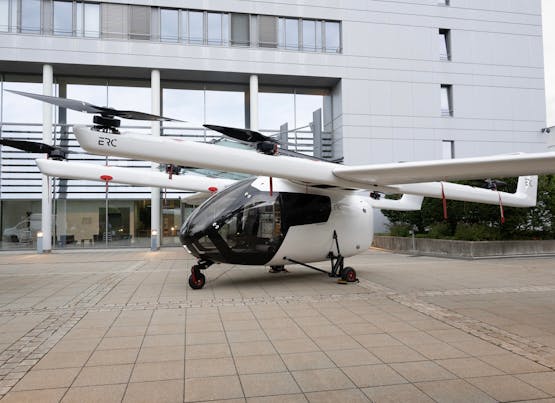
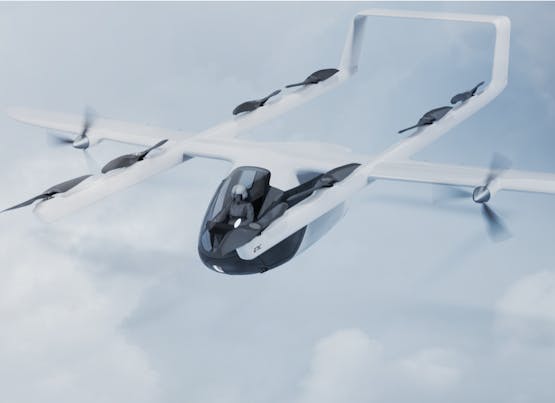
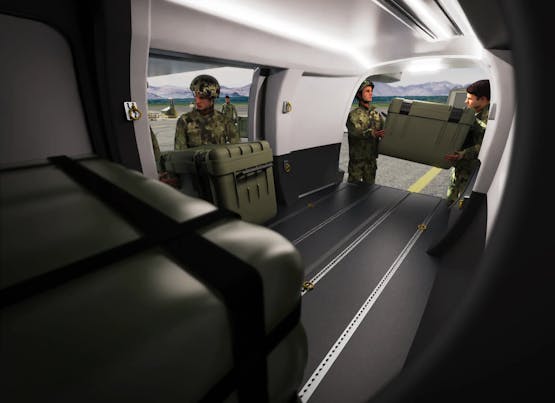
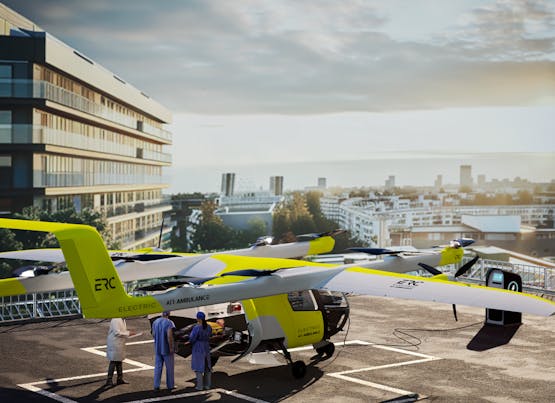
- Combines 8 redundant vertical lift propellers and 2 dedicated cruise propellers to ensure reliable and efficient performance throughout all flight phases
- Enables a smooth transition from vertical takeoff to forward cruise without tilting the propellers
- The transporter of the air - Largest cabin with high accessibility through back and side doors
- Ideally suited for patient transport, military logistics, cargo delivery, and any use case demanding a highly accessible aircraft
- Large clamshell doors enabling convenient rear loading and unloading
- Easy access for loading bulky cargo, medical equipment, and patient transport










- Design
- Propulsion architecture and Flight Performance
- Safety
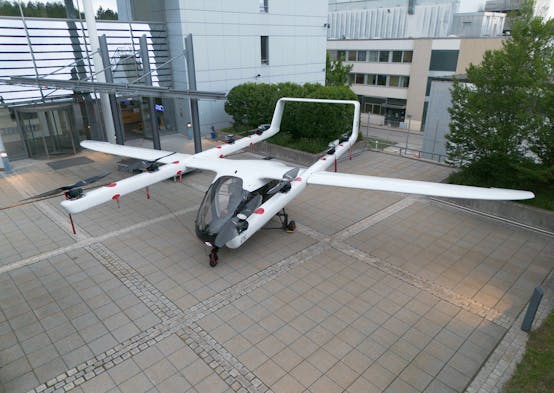
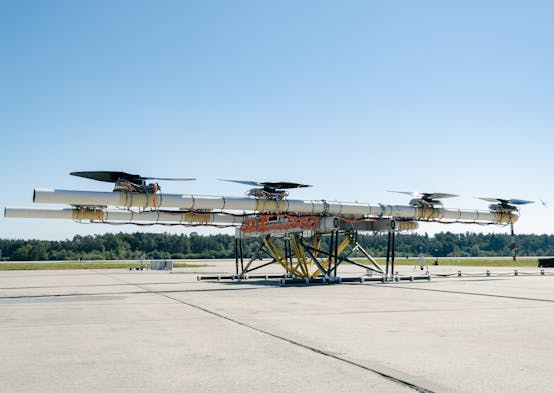
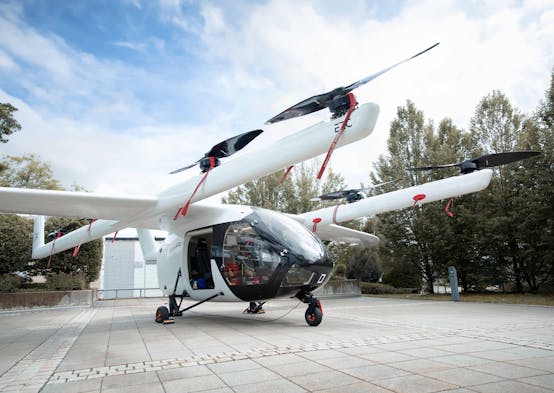
Takeoff & Landing
VTOL with CTOL capability for flexible deployment
Rotor Configuration
8 vertical propellers + 2 horizontal propellers (Lift & Cruise)
Flight Control System
Fly-by-Wire
Cabin Volume
5.2 m³
Payload Capacity
500+ kg
Clamshell Door Size
1.4 m x 1.4 m
Wing Span
15.2 m
Propulsion System
Full-Electric or Hybrid-Electric
Hybrid-Electric Range
800 km (500 mi)
Electric Range
200 km (125 mi)
Cruise Speed
220 km/h (120 knots)
Charge Time
80% of charge in 20 minutes
Certification Standard
EASA SC-VTOL first, FAA subsequently
Catastrophic Failure Rate
1 in a billion (10⁻⁹)
Propulsion Safety
Redundant electrical system with backup batteries
Comparative Safety
As safe as a twin-engine helicopter (according to certification standard C29)
Ground Safety Design
Wing height of 2.2 m, with propellers positioned above the fuselage to ensure safe movement around the aircraft at all times
Contact us
- Work with us
- Become a partner
- Press Inquiry
- Investor Inquiry
- Supplier inquiry

